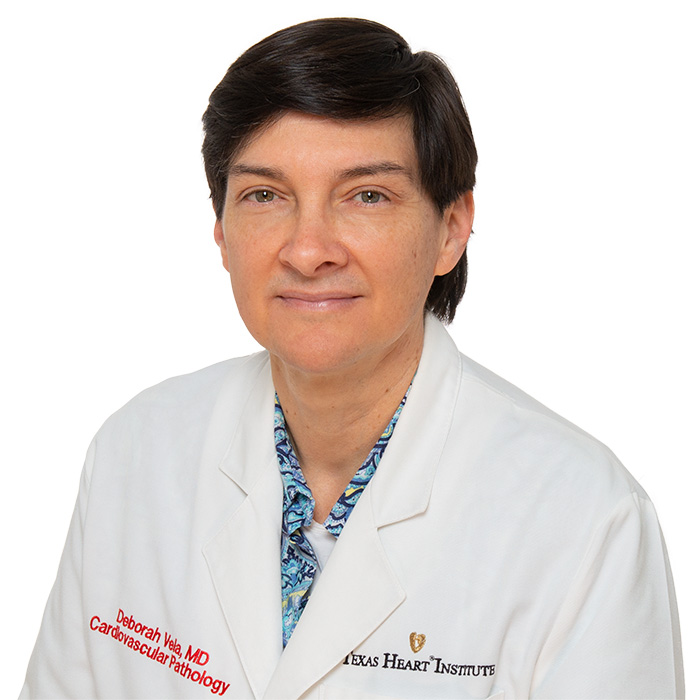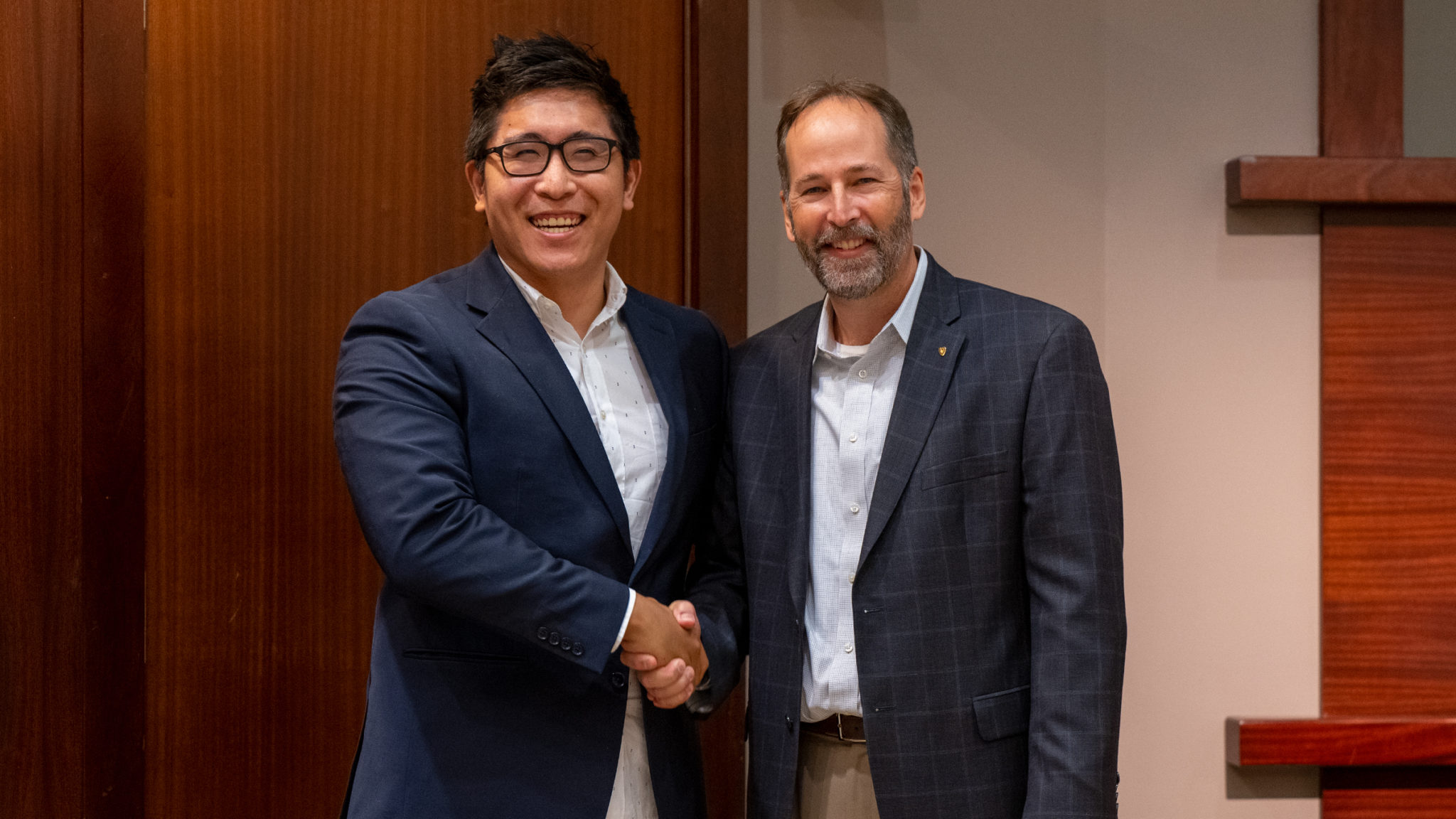
Deborah Vela is an Associate Research Investigator in the THI Cardiovascular Pathology Research Department. Holding a Medical Degree from Universidad de Guayaquil and a Master of Science in Biomedical Sciences from The University of Texas-Health Science Center at Houston, she joined THI in 2005, and is an Adjunct Assistant Professor in the Department of Pathology and Laboratory Medicine at the McGovern Medical School, University of Texas at Houston. Her research interests include atherosclerosis, with special focus on novel imaging technologies for early detection of the disease, and experimental therapies for the treatment of acute and chronic heart disease. Show full bio
Dr. Vela earned her Medical Degree from Universidad de Guayaquil, Ecuador in 1996. After validation and certification through the Educational Commission for Foreign Medical Graduates (ECFMG), in 2002 she joined the Vulnerable Plaque Research Laboratory led by Dr. S. Ward Casscells, at University of Texas–Health Science Center at Houston, where she worked on the histopathology of coronary artery disease and atherosclerotic plaque characterization and detection through non-invasive imaging modalities.
In 2010, Dr. Vela earned a Master of Science in Biomedical Sciences from the MD Anderson
Cancer Center UTHealth Graduate School at The University of Texas at Houston. Her graduate
studies were carried out in the lab of Dr. Heinrich Taegtmeyer, focusing on the gene expression
and protein degradation pathways in a rat model of cardiac hypertrophy.
During her tenure at Texas Heart Institute, beginning in 2005, Dr. Vela’s work has continued to
focus on the histolopathology of cardiovascular disease, with particular interest in
atherosclerosis and myocardial infarction. Her work in the field of atherosclerosis continues to
focus on plaque characterization and early detection of the disease through novel non-invasive
and endovascular imaging modalities, and often consists of collaborative, interdisciplinary
projects with research groups from both in and out of state. Much of this ongoing research is
related, but not limited to, the development of endovascular imaging catheters, either uni- or
bi-modal in nature, often with the aid of novel molecular imaging agents and algorithms for
post-acquisitional analysis. Dr. Vela’s interest in myocardial infarction has allowed her to work
in varied pre-clinical projects, predominantly in large animal models, exploring new therapies
for the treatment of acute and chronic heart disease. In these projects, she has focused mainly
in the tissue dissemination and healing patterns, and the inflammatory and immunologic
response to such therapies.
Additionally, since 2007 Dr. Vela has been an Adjunct Assistant Professor in the Department of
Pathology and Laboratory Medicine at the McGovern Medical School, University of Texas at
Houston.
Texas Heart Institute Positions
- Associate Research Investigator, Cardiovascular Pathology
Interests
- Atherosclerosis
Education
-
Postgraduate:
The University of Texas Health Science Center at Houston, Graduate School of Biomedical Sciences
-
Medical School:
Universidad de Guayaquil
Academic & Clinical Affiliations
- The University of Texas Health Science Center at Houston
Certifications
- Educational Commission for Foreign Medical Graduates
Honors, Awards and Memberships
Publications
Recent News

The Texas Heart Institute Research Symposium 2022: A Day to Celebrate Innovation, Collaboration, and Translation
During its annual day-long Research Symposium on October 20, 2022, The Texas Heart Institute community came together in the Denton...

Sharing Science Globally to Advance Medicine
Texas Heart Institute has been at the forefront of cardiovascular discovery and innovation since its formation. It continues to relentlessly...




